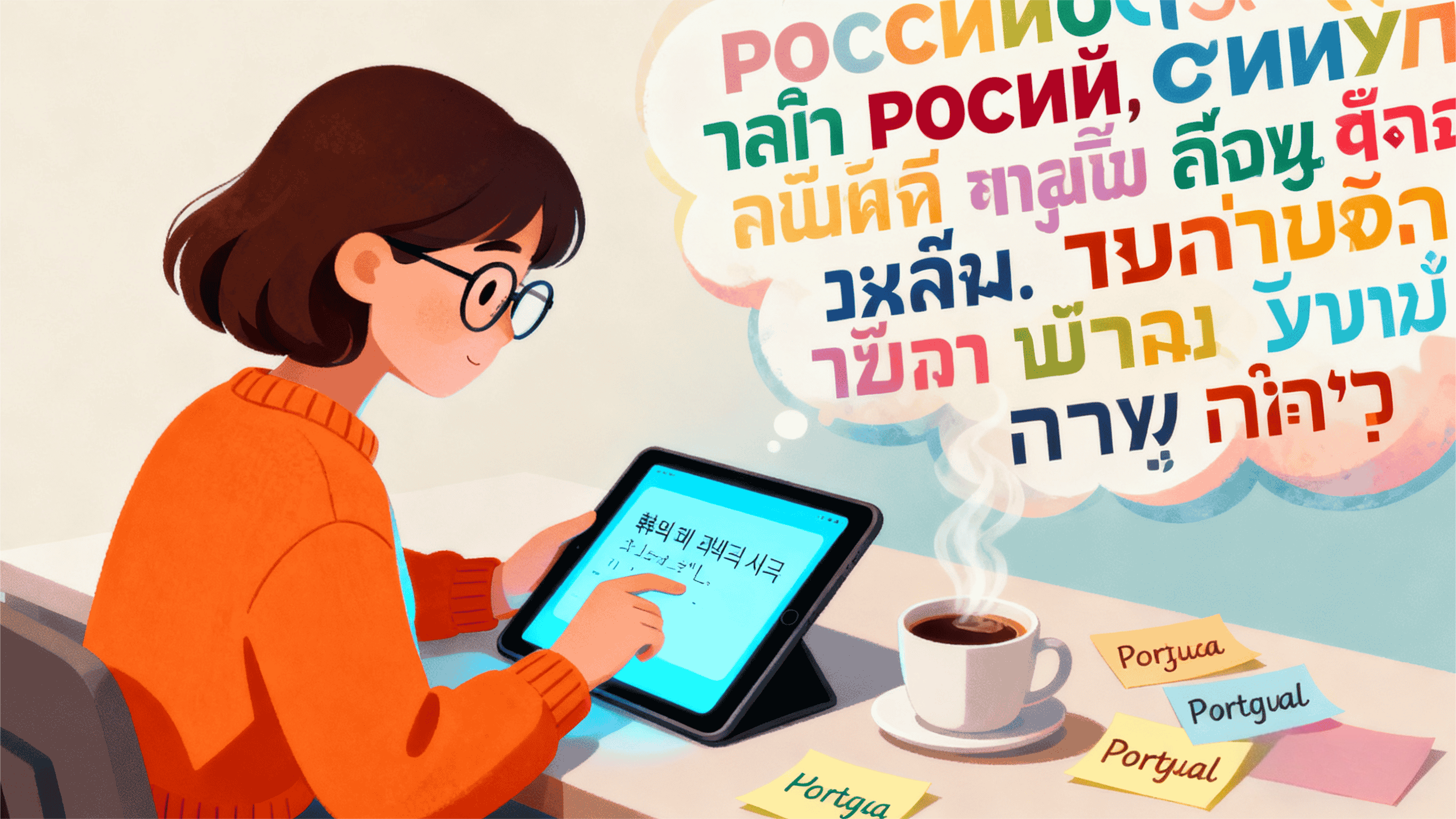Global business moves at lightning speed these days, with deals sealing across time zones in mere hours and viral content exploding overnight—making an urgent translation demand feel like a race against time. Picture this: you're rolling out a specialized video game to an emerging market or adapting subtitles for a short drama that needs to stream by morning—any holdup could spell disaster. For companies and content creators under such intense pressure, the key is securing rapid translation that doesn't skimp on precision. The true test? Striking that perfect equilibrium between velocity and the refined expertise that fosters genuine cross-cultural connections.
The translation industry has exploded in recent years, driven by the demand for quick, seamless communication in everything from e-commerce to entertainment. According to the U.S. Bureau of Labor Statistics, jobs for translators and interpreters are projected to grow by 20% through 2032, outpacing many other professions. This surge reflects how essential rapid, high-quality language services have become. Yet, not all approaches deliver equally. Rushing a project with the wrong partner can lead to embarrassing errors—like mismatched idioms or technical inaccuracies—that erode credibility. So, how do you secure 24-hour translation that doesn't compromise on depth?
Professional translation companies stand out here because they're built for these pressure-cooker scenarios. Take their project management prowess: unlike solo operators who might juggle everything alone, established firms can swiftly assemble a dedicated team of linguists tailored to your niche. Whether it's rare dialects for a legal document or specialized terminology for audiovisual content, they draw from a global pool of experts. This isn't just about numbers; it's about coordination. A good agency uses streamlined workflows to assign tasks in real-time, ensuring no bottlenecks slow things down.
Then there's the tech edge. Tools like Translation Memory (TM) systems and terminology databases act as accelerators, recycling previously translated phrases to maintain consistency while slashing time. For instance, in a rush job for video localization, TM can instantly pull up approved terms from past projects, letting translators focus on fresh content. A report from Nimdzi Insights pegs the global language services market at $71.7 billion in 2024, with much of that growth fueled by such innovations that blend human insight with automation. These aren't gimmicks—they're proven to boost efficiency without skimping on nuance.
Even under tight timelines, top agencies refuse to skip the essentials. Core review steps, like proofreading and quality assurance by a second set of eyes, remain non-negotiable. This layered approach catches subtleties that machines or hurried individuals might miss, such as cultural adaptations that make a script resonate in a target language. The result? Urgent translations that feel thoughtful and precise, not slapped together.
Contrast this with hiring a freelance translator for a fast turnaround. While many freelancers are talented, the solo nature of their work can lead to trade-offs when deadlines loom. Without a support network, they might cut review time to meet your 24-hour window, risking oversights that could misrepresent your message. Industry surveys highlight the strain: a 2020 European Language Industry Survey found that 40% of freelance translators struggled to earn a sustainable income from translation alone, often leading to overwork and potential quality dips under pressure. Agencies, on the other hand, distribute the load, preserving reliability even in crunch mode.
A prime example of this done right is Artlangs Translation, a firm that's honed its craft over years of specializing in multilingual services. With expertise spanning more than 230 languages, they've focused on everything from general translation to niche areas like video localization, short drama subtitle adaptation, game localization, and multi-language dubbing for audiobooks. Their track record includes standout cases, such as seamlessly localizing a series of international short dramas that preserved cultural humor while hitting aggressive release schedules. This depth of experience means they don't just translate words—they embed local flavor, drawing on vast terminology libraries to deliver polished results swiftly.
What sets companies like Artlangs apart is their commitment to blending speed with substance. In a market where the translation services sector is expected to climb from $59.93 billion in 2025 to $92.95 billion by 2030, per Mordor Intelligence, the winners are those who invest in robust processes. For clients with burning deadlines, this translates to peace of mind: your urgent project gets the professional touch it deserves, without the gamble.
If you're staring down a time-sensitive translation—be it for a global campaign or a specialized audio piece—opting for a seasoned agency isn't just smart; it's strategic. It ensures your content lands with impact, fostering connections that last beyond the deadline. After all, in the rush to communicate, quality is what truly speaks volumes.











